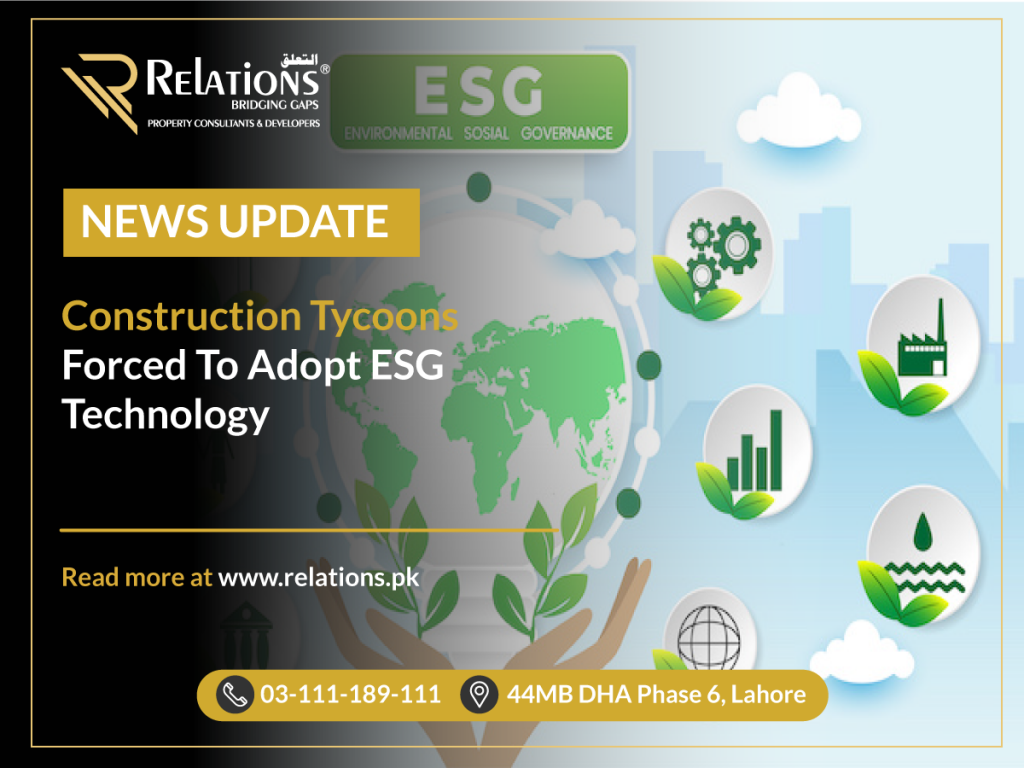Construction Tycoons forced to adopt ESG Technology
The real estate and construction sector uses up 43 percent of global energy production. The energy consumed by the industries to produce myriads of building materials causes massive emissions of greenhouse gases into the atmosphere. Thus, the sector becomes the biggest contributor to global warming.
ESG Model
The ESG model in real estate warrants sustainable environment protection, the sociability of real assets, and safety of the construction crew and the capacity of real estate companies to ensure post-development property management. I would encourage investors to realize ESG elements while making financial decisions. It may, in the long run, enforce the property tycoons to consider fair play while architecting, developing and managing housing and business districts. According to the European CFO Survey 2020, a bit more than half of the real estate companies in Europe consider ESG measures. They are more responsible business doers and the rest of the world could follow their footprints in this regard.
Safety of workers
To what extent are the real estate conglomerates socially responsible? According to the US Department of Labour, around 900 workers die on construction sites in the United States every year. It equals 20pc of total workplace fatalities. Upwards of 175,000 occupational injuries are in addition to this.
Just imagine the condition of safety at construction scaffolds in developing and underdeveloped countries where obsolete technology, unskilled labor and least safety measures hamper the way forward.
Fewer fatalities in ESG Model
As per Pakistan Social Sciences Review, STFs (slips, trips and falls) are the key contributors to the total number of fatalities in the construction industry. About 6pc of Pakistan’s total workforce in construction suffers from workplace injuries and fatalities because of governance failure. This is why ESG values have become inevitable in the construction segment specifically.
Recycling of Building Materials
Enabling the industry to consume less energy and squeezing the demand for superfluous building materials could lessen the emission of greenhouse gases. The replacement and recycling of contemporary building materials are perhaps much-needed milestones to be achieved.
Incorporation of ESG in the real estate sector
The incorporation of ESG standards in the real estate sector has got momentum in recent years. The essential operational strategy finds its roots in the consideration of ESG factors that bolster the sustainability of real estate investments. Worldwide, efforts are being poured to decarbonize real estate assets. The Securities & Exchange Commission of Pakistan has already issued corporate social responsibility instructions to be practiced by the listed companies.


